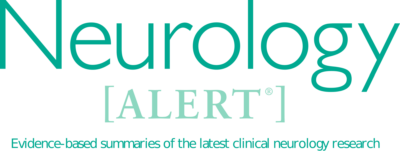
Neurology Alert – November 1, 2020
November 1, 2020
View Issues
Ketamine for Super-Refractory Status Epilepticus
In this retrospective paper, the authors review the efficacy and safety of ketamine infusion in patients with status epilepticus who have failed benzodiazepine, standard anticonvulsant, and at least one other anesthetic drip.
COVID-19 Infection in MS Patients
In a multicenter, retrospective analysis of patients in a multiple sclerosis (MS) registry, the authors described the clinical characteristics and risks associated with severity of complications from COVID-19 infection in patients with MS.
IqYmune for CIDP
IqYmune is a highly purified 10% concentration of human immunoglobulin obtained from healthy volunteers. It appears to have similar efficacy in the treatment of chronic inflammatory demyelinating polyneuropathy (CIDP) as conventional intravenous immunoglobulin, with 76% of the study patients showing a significant improvement in a standardized disability score.
Tranexamic Acid and Outcomes in Patients with Moderate or Severe TBI
In this randomized, placebo-controlled trial using tranexamic acid to treat patients with moderate or severe traumatic brain injury within two hours of injury, there was no significant difference between treatment groups in either mortality or functional recovery at six months.
Carotid Endarterectomy vs. Medical Therapy in Patients with Asymptomatic Carotid Stenosis
Multiple randomized clinical trials have demonstrated that carotid endarterectomy is beneficial in patients who have symptomatic carotid stenosis, and currently, that is the recommendation for such patients. However, in the intervening years, advances in medical therapy, as well as significant improvement in the management of blood pressure, diabetes, diet, and exercise, have been shown to reduce stroke rate. Therefore, it is currently controversial whether carotid endarterectomy is still beneficial in asymptomatic patients with carotid artery stenosis compared to current medical management.
Can Anticoagulant Strategies Reduce Covert Brain Infarcts in Patients with Cardiovascular Disease?
Covert brain infarcts are detected on magnetic resonance imaging studies in the aging brain in about 10% of people at age 65 years, increasing to 25% at age 80 years. Most patients who develop dementia have a combination of multiple small infarcts, plus amyloid deposition. Prevention of covert infarcts is a strategy to mitigate the frequency and severity of late-life dementia.
Recurrent Stroke After Embolic Stroke of Undetermined Source
Twenty percent to 40% of ischemic strokes are classified as cryptogenic, meaning a specific cause cannot be identified. A subset of those have been classified by some investigators as embolic stroke of undetermined source. However, this remains a controversial category and classification.
